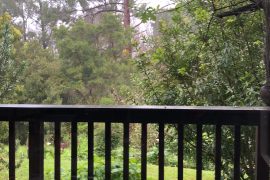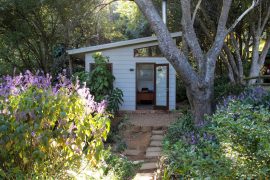Simon and Garfunkel sang “I am a rock, I am an island” in the 60’s. Concepts like autonomy, self-reliance, winning and individuation have all been useful in carrying mankind forward. “Tall poppies” are no longer cut down, but celebrated. You no longer have to feel bad for being ambitious beyond your circumstance, or for putting yourself first.
The pendulum might have swung out a bit far; there has been a cost to this kind of mindset. Loneliness and isolation are on the rise. In a US survey, the number of adults with zero confidants has tripled since the 80’s. Adults, especially adults without religious affiliations, do not belong to a local community or volunteer programmes any more.
I see it in my practice all the time. Many of my patients are deeply lonely and isolated. It might be because of mood disorders which make it difficult or anxiety provoking to connect; it might be because of a difficult childhood which makes accepting love and compassion hard. But just because they struggle to connect, does not mean that they don’t yearn deeply for it.
A Harvard study followed people up for nearly 80 years (the longest study to date) and concluded that the single best predictor of health, longevity and quality of life is the quality of people’s relationships. Conversely, without social connectedness, you are more likely to catch a cold, have heart disease or stroke, slip into cognitive decline or be depressed.
Loneliness is normal. Without it, we would not go through the trouble and angst of dating and finding a mate. Being in a loving relationship is a wonderful thing and raises our resilience to life’s hardships. There is another, also very important level of connectedness, that one of community.
I became acutely aware of this recently when I was in the hospital. My loved ones gathered around and made me feel better and made me feel blessed. I had never given much thought to my communities before my hospitalisation. People whom I’m not necessarily very close to, but groups I’m most certainly part of – the work affiliation that covered for my patients’ emergencies, the mothers at my kids’ school who (bless them) lifted my kids and kept my fridge stocked. The sisterhood of girlfriends with their loving messages and impromptu haikus.
Isabelle Allende said, “we only have what we give”. From now on I’m going to counsel my patients not to spend all their energies on dating sites trying to find a mate. An important task, for sure, but to keep some time and energy aside to be present for communities. It’s easier if you have religious affiliations because churches are “inbuilt” communities. But there are also support groups, neighbourhood groups, other parents, other old people, other lonely people. Volunteer, join, show up. You can’t force friendships and intimate relationships, but there is a huge benefit to simply being part.
It seems that an impediment to connecting is being in a rush. In the now-famous seminary experiment, seminary students – men who were trying to be spiritual and good – were asked to give a talk on the Good Samaritan.
After their prep, they went across to a quad to a hall where they were to present. In the quad, a man was bent over double, in considerable and obvious pain. Of all the future young priests, their minds filled with the parable of the Good Samaritan, only 60% stopped to help. (Don’t judge them too harshly. I’ll warrant the number would be much lower in a general population.) When questioned, the other 40% said that they did not stop because they were in a hurry, that they feared they would be late.
The evidence is further played out: Prof Paul Gilbert makes a compelling case that mindful communities are compassionate communities. That taking the time to become aware of our minds allows us to feel more connected: with ourselves, with nature, with each other.
I’m still trying to figure out how this translates to my life and practise. I think it’s something about joining the neighbourhood WhatsApp group and then switching off its notifications so that you are not disturbed when you slow down and have a few words with your neighbour. I am more inclined to relate to the other Paul, Paul McCartney’s, hit, “We all stand together”.








2 Comments
If you will allow, I’m going to take this opportunity to shamelessly promote our little community of persons living with bipolar mood disorder and their loved ones. We are a non-medical, peer lead group who offer mutual support, advice, factual information and a non-judgmental space for people to share their stories. I have found our community to be a source of shared strength and genuine friendship. Unfortunately, we cannot be all things to all people so we are restricted just to bipolars and their supporters. For further information go to http://bipolar.capetown/ . For more information about other support groups in your area contact SADAG at 0800 567 567.
The Bipolar support group is a wonderful resource!